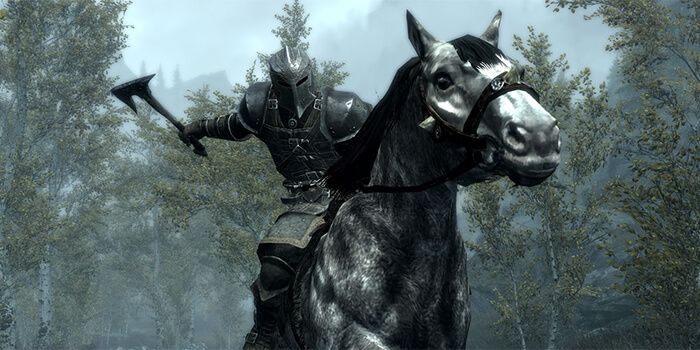Game clichés are as natural as clichés in any other medium. The longer a form of media exists, the more likely it is to have clichés, and with video games in their fourth decade of mainstream popularity, it's unsurprising that game clichés have begun to appear.
Many of these clichés also appear in other media, but have an increased prevalence in games thanks to the immersion factor, the desire for players to be extra powerful, or because we're still pushing the boundaries of what stories games can tell. And game clichés aren't all necessarily bad—clichés work, and can be done in new and exciting ways that don't feel so familiar or tired.
That being said, it's time to stop falling back on these four game clichés so frequently.
Follow Your Destiny as The Chosen One
Video games are an excellent way to feel more powerful than you do in your everyday life. Games let you wield magical powers, shoot with deadly accuracy, and pursue romance with people who might be out of your league in the real world. They also give you a sense of purpose you might not have in real life—is there anything better than being told you're The Chosen One, the most important person in the world?
Except that so many games are so fond of this idea that it's become one of the biggest game clichés. It makes sense from a storytelling standpoint—it explains how your character has such incredible power to defeat so many enemies and it gives you a sense of purpose to navigate the story. But when you play The Chosen One in game after game after game it begins to ring a little hollow.
In Skyrim you're the Dragonborn (and The Chosen One of the Night Mother, and the Psijic order, if you choose to explore those plots), in Kingdom Hearts you're Sora, the one who can open the door to light, and Desmond of the Assassin's Creed series has a serious number of historical Chosen Ones in his genetic memory. While none of these games are bad, it's a little eyeroll-inducing that so many games fall back on this trope.
Game Cliches Create Easy Angst by Killing Family Members
Need to get players invested in a character's backstory? Want to make a tearjerker only a few minutes into a game? Why not kill off their entire family?
This is one of those game clichés that totally make sense from a writing standpoint—you need to get the protagonist to a point where they'll do just about anything for revenge, and they need to lack familial ties so there's nothing stopping them from setting out on their journey. It's a trope that's not just in games, either, as it's the foundation for Batman's tragic backstory and for characters like Harry Potter.
But the number of games that begin with a character's family's death tends to rob it of significance. Middle-earth: Shadow of Mordor begins with the deaths of Talion's family, Dragon Age: Origins, depending on your character's starting point, may include the slaughter of one or more family members, and The Last of Us famously begins with the death of Joel's daughter.
Like The Chosen One trope, there's not necessarily a correlation between using dead families and having a bad game—but the prevalence of the cliché means players can usually see it coming a mile away, stealing some of the sting from the event.
Game Cliches Make Players Doubt Reality
Because games are immersive, there's a whole lot of fun to be had in breaking the fourth wall. The events you're seeing in the game aren't real, but games can add an additional dimension of unreality that makes you question whether the events your character experiences are real to them, either—and thus, the "crazy all along" trope is born.
Game clichés like this are fun in some instances, annoying in others. It's fun to have a game play with your sense of reality, as Batman: Arkham Asylum does when the Joker appears to reset your console, but having the entire ending of a game rely on the twist being that the protagonist is either crazy or dreaming has ceased to be a surprising twist and has instead become a boring cliché.
Doubting what you see through the eyes of your character is a core tenet of several Silent Hill games, as the enemies may just be all in your head. It's a common trope in the American McGee's Alice games, which tread a thin line between reality, insanity, and dreaming. While the trope fits these games perfectly and is executed well, that's only because it's in the hands of skilled writers—it's all too easy to use tropes like these as a substitute to cover up less than stellar writing.
What are you least favorite game clichés?

